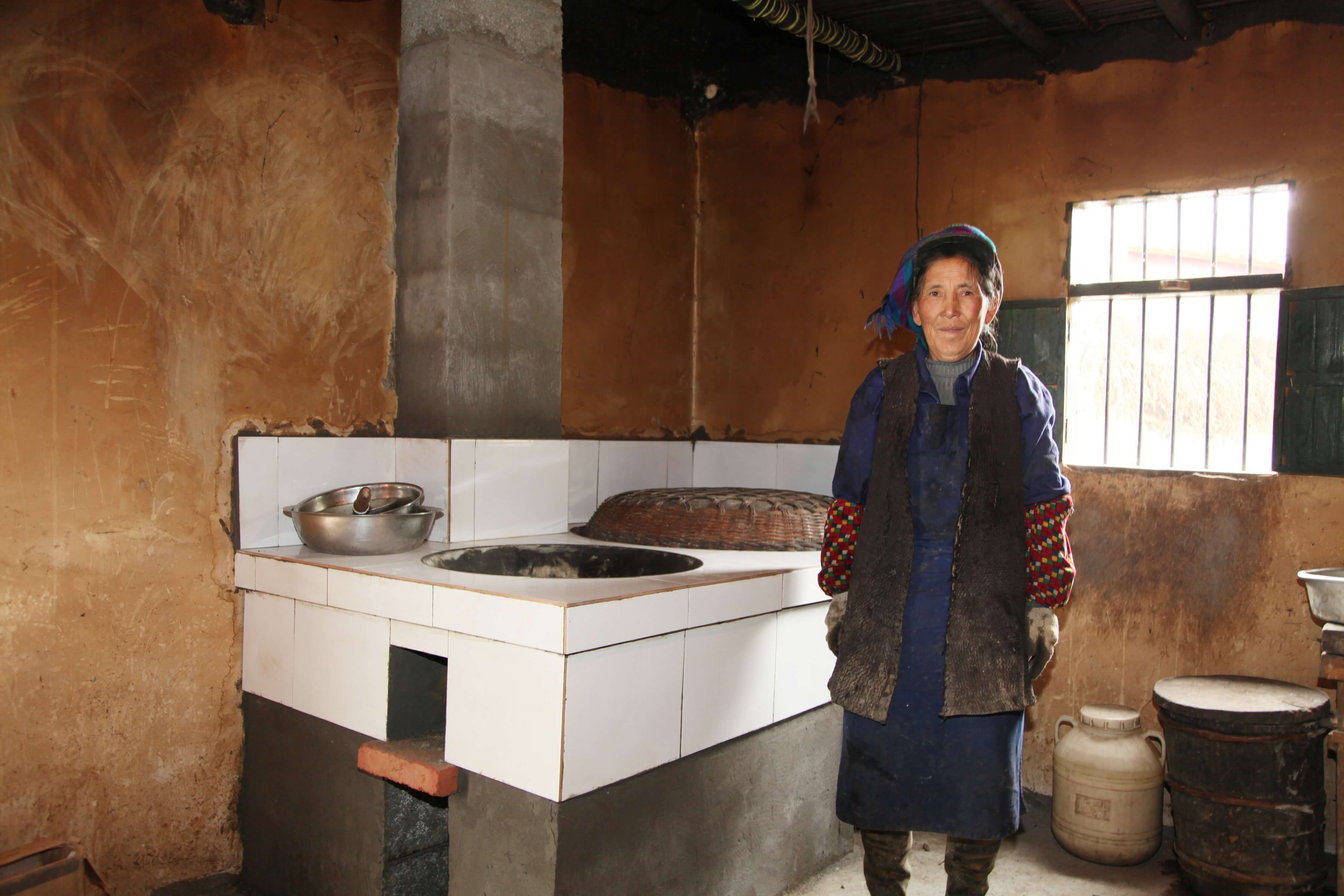Temukan proyek pengurangan karbon kami
Hasil dari program FlyGreener mendukung proyek yang telah mencapai akreditasi Gold Standard yang ketat, menggabungkan pengurangan karbon dengan prakarsa pengembangan berkelanjutan. Portofolio proyek pilihan kami berkontribusi meningkatkan kesehatan dan kehidupan di masyarakat pedesaan di Bangladesh, Kamboja, dan Tiongkok.
Kompor Bondhu Chula, Bangladesh
Kurang dari 20% dari 35 juta keluarga Bangladesh yang memiliki akses ke dapur bersih. Secara tradisional, mereka memasak menggunakan kompor “tiga batu” terbuka yang melepaskan asap dan polutan berbahaya. Hal ini mengakibatkan hampir 50.000 kematian dini per tahun serta menyebabkan jutaan orang menderita infeksi saluran pernapasan.
Proyek ini mendistribusikan kompor yang berkualitas dan murah yang dikenal sebagai Bondhu Chula, atau “kompor ramah” ke distrik pedesaan di Bangladesh. Hingga saat ini, sekitar 40.000 kompor telah terpasang. Kompor ini mencerminkan metode memasak tradisional, tetapi bahan bakar yang digunakan jauh lebih efisien – Bahan bakar yang dibutuhkan hingga 50% lebih sedikit – dan dirancang untuk mengeluarkan asap berbahaya dari rumah, sehingga menciptakan udara dalam ruangan yang lebih bersih bagi wanita dan anak-anak.
Kompor Hemat Kayu Bakar, Cagar Alam Mamize, Tiongkok Daratan
Di pedesaan Tiongkok Daratan, banyak rumah tangga mengandalkan kompor tradisional berbahan bakar kayu, yang mendorong tekanan deforestasi di daerah kritis seperti Cagar Alam Mamize dan menyebabkan polusi udara dalam ruangan yang berbahaya bagi keluarga.
Proyek ini menggantikan kompor api terbuka tradisional dengan kompor hemat kayu bakar (FSC) bagi keluarga di kawasan Cagar Alam Mamize. Semua kompor ini secara signifikan mengurangi jumlah kayu bakar yang dibutuhkan serta meminimalkan produksi asap dengan menambahkan cerobong asap dan sistem pasokan udara yang optimal. Desain ini memastikan pembakaran bahan bakar yang lebih efisien dan secara efektif mengekstrak asap dari ruangan. Hasilnya, kompor yang lebih baik ini dapat menghemat hingga 50-60% kayu bakar yang diperlukan untuk memasak sehari-hari sekaligus secara drastis mengurangi polusi udara dalam ruangan yang berbahaya akibat memasak.
Kompor Hemat Kayu Bakar, Habitat Meigu Panda, Tiongkok Daratan
Akses ke fasilitas memasak yang bersih dan efisien tetap terbatas untuk banyak keluarga di pedesaan Tiongkok Daratan, yang masih mengandalkan api tradisional untuk memasak makanan sehari-hari. Kompor ini tidak hanya menghasilkan asap yang berbahaya, menciptakan lingkungan memasak yang berbahaya, tetapi juga mendorong penggundulan hutan yang signifikan karena banyak sekali pohon yang ditebang setiap tahun untuk kayu bakar. Di desa-desa di sekitar Cagar Alam Dafengding, tindakan deforestasi ini menghadirkan tantangan unik karena Cagar Alam ini adalah salah satu dari segelintir rumah hutan pegunungan yang tersisa bagi panda raksasa.
Melalui kemitraan dengan WWF, proyek ini telah menyediakan kompor yang efisien di rumah-rumah di seluruh Meigu County. Kompor ini mengurangi penggunaan kayu hingga 70%, menggalakkan praktik memasak yang bersih, mengurangi risiko kesehatan dari polusi udara dalam ruangan, serta membantu mencegah degradasi lebih lanjut dari Cagar Alam Dafengding. Desain yang lebih baik ini memanaskan dengan lebih efisien, mempersingkat waktu memasak, dan secara signifikan mengurangi jumlah kayu yang dibutuhkan. Selain itu, sistem aliran udara yang terintegrasi dilengkapi cerobong untuk mengalirkan asap ke luar ruangan, sehingga meningkatkan kualitas udara di dalam ruangan untuk keluarga.
Biodigester Nasional, Kamboja
Program Biodigester Nasional (NBP) ini menyediakan sumber energi yang efisien dan berkelanjutan untuk masyarakat pedesaan di Kamboja. Terletak di provinsi selatan, program ini memanfaatkan biogas yang dihasilkan oleh limbah hewan dan manusia di biodigester, yang menciptakan energi bersih dan pupuk organik untuk petani, meningkatkan hasil panen tanaman, dan menciptakan lapangan kerja setempat. Hingga saat ini, proyek ini telah membantu mengurangi deforestasi dengan menghemat lebih dari 150.000 ton kayu, serta meningkatkan kesuburan tanah, yang menguntungkan lebih dari 18.000 peternakan.










